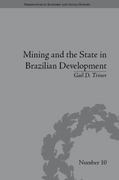Question
Many things happened but after a long and winding path, Songwha and Ikjun finally got married (or so we hope, shall we say). While their
Many things happened but after a long and winding path, Songwha and Ikjun finally got married (or so we hope, shall we say). While their marriage is full of love and affection, the hectic nature of their life as doctors at a hospital leaves them little time to talk to each other. It can be a problem when, for example, Songwha and Ikjun need to decide on where to go for dinner. Ikjun may need to choose a restaurant alone, hoping that Songwha would somehow show up there. Songwha faces a similar situation.
When their discussion about dinner ended abruptly this morning due to a call from the emergency room, the couple was weighing two restaurant choices, one spe- cializing in beef, denoted B, and the other in pork, denoted P. They agreed to go to one of those places tonight but did not have a chance to communicate their pref- erences in exact terms and therefore could not finalize their decision. Songwha and Ikjun have been friends for over twenty years now, so it is common knowledge that Songwha prefers pork while Ikjun prefers beef. These preferences are conditional on the fact that the two go to the same place. After all, love is above food and being separated in different restaurants is the worst outcome for the couple. More specifically, the payoffs to Songwha and Ikjun in this "Battle of the Doctors" are as follows (for notational simplicity, let us sometimes call Songwha "player 1" and Ikjun "player 2"):
Ikjun (player 2)
Songwha (player 1) B P
B 1,2 0,0
P 0,0 1, 1
The payoffs1and2indicate preference intensities that Songwha and Ikjun exhibit for their respective preferred choices. For eachi {1,2},iis drawn from the uniform distribution over [1,2] and its realization is known only to playeri; e.g., Ikjun knows the realization of2but not that of1. Therefore, we may treatias playeri's type and a typical mixed strategy for playeriissi: [1,2][0,1], with for eachi[1,2],si(i) representing the probability that playeriof typeiplaysB. Now we search for Bayesian Nash equilibria (BNE) of this game.
(a) As a first step, show that the following is a BNE: for each i {1, 2} and each i [1, 2], si(i) = 1 (i.e., the two players play B, regardless of their types).
(b) Let us construct other BNE. Suppose that Ikjun plays s2 and let 1 [1,2]. Find the best response b1(s2|1) for Songwha of type 1 against s2. For each i {1, 2}, let i be the expected value of the probability that si plays B. Then b1(s2|1) relies crucially on 2.
(c) Assuming that Songwha plays s1, find the best response b2(s1|2) for Ikjun of type 2 against s1.
(d) If Songwha plays according to her best response b1 against s2, what is the expected value of the probability that she plays B. That is, find 1. Derive an equation defining 1 in terms of 2.
(e) Repeating (d) for Ikjun, you will obtain an equation defining 2 in terms of 1. Using this and your answer to (d), find (1,2) such that (s1,s2) is a BNE.
(f) Describe in full the players' strategies in BNE.
Step by Step Solution
There are 3 Steps involved in it
Step: 1

Get Instant Access to Expert-Tailored Solutions
See step-by-step solutions with expert insights and AI powered tools for academic success
Step: 2

Step: 3

Ace Your Homework with AI
Get the answers you need in no time with our AI-driven, step-by-step assistance
Get Started


